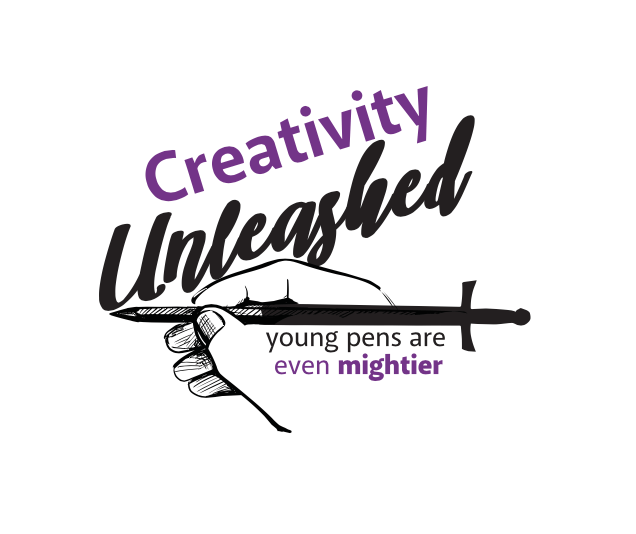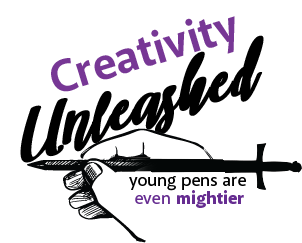A Letter from Within the Shadows
Omar blinked harder. And harder. But still, the utopia he had dreamt of at night didn’t appear. Sighing, he picked up a pencil carefully and positioned its tip against a piece of paper.
In the cramped refugee camp of Beit Hanoun in Palestine, the air filled with the scent of olive trees and the distant hum of conflict. Along with the hope of finding peace, Omar’s dream of becoming an author resembled the very last sight of a flame on a snuffed out candle. To him, writing letters to imaginary friends gave the only silver lining in a world full of darkness, and might be the only way to make him feel closer to peace. Imagining it.
In the letters to his friends, he poured out his heart, describing the beauty and the horrors of his world with a calmness that belied his age. Not far from where he wrote was a brook he could hear. Compared to where he had once called home – a place where war raged, the brook, despite its fill and blemishes from the humiliated humanity beside it, seemed surprisingly quiet and calm.
"Dear Friend," he began, sitting by his window with his pencil scratching against the paper. "Today, a tank rolled through our street again. It was loud and frightening, but I remembered your words and stayed brave. I hope you are safe and happy wherever you are." – Omar
He paused. This was not his first time trying to imagine what the lives of kids living in other places might be like. Did the sky look the same to them; did they hear birds singing or the distant echo of explosions; did they feel safe at home or wonder if they’d have to leave everything behind tomorrow?
He folded the letter neatly and placed it inside a bottle, along with some pretty stones he found as a gift for his imaginary friend. As always, he tossed the bottle in the brook carefully, hoping that he would someday find a letter that started with “Dear Omar”.
With the murmur of the brook, the bottle floated quietly into the unknown.
***
Far away, at the same time in Lviv, Ukraine, Olena, a mother, closely watched her twin daughters. As they lay in their beds, their sleeping eyes held no sign of the stress or panic that often enshrouded them during the day. Their eyelashes fluttered like delicate wings as a breeze blew by; their lips, once robust and plump, were now paper thin, pale, peeling. The last year of violence had begun to take its toll.
She often wondered how things could have been if they had been born in a peaceful country. But once the tanks rolled in, and the bombs began to burst indiscriminately everywhere they turned, her priorities had changed. Olena no longer hoped they would live a happy life like the princesses in the fairy tales she had read to them countless times. Now, her main desire was for her precious girls to simply survive – a fate far different from their father. As the first few soldiers to meet the Kremlin, their father, trying as hard as possible to survive in the war and to bring peace, had died. This left Olena to tend to everything, and she often found herself staying up at night to keep watch over her daughters.
As the war moved itself slowly into the forward march of time, Olena tried as hard as she could to enable some sense of normalcy for her children. One day, having lost count of what day into the war they were in, she watched her daughters run towards the river that meandered beside their house. They splashes water on each other, perhaps, like any other carefree child might do. With a gasp, they both reached down into the depths of the water to retrieve a bottle that floated there. Olena’s heart skipped a beat, gently taking the bottle from their hands. With a strange mixture of curiosity and hope, her fingers trembled as she opened it.
“Dear Friend,” it began.
She read through the letter, the innocence and bravery in its preserved voice touching her deeply. She could picture him, this unknown boy from a distant land, sitting by a brook much like the one in front of her, dreaming of peace in a world where peace was hard to find.
Olena sat by the riverbank. Holding the letter, she felt a connection with this boy, a bond forged through shared struggles. She imagined Omar, with his dark eyes full of dreams as he wrote his hopes and fears onto that piece of paper. Olena wondered what she could say to him, but how could she, a mother who had lost so much, offer comfort to a boy who had probably lost just as much, if not more?
“There’s probably something I can do,” she said to herself. Tucking the bottle and its precious cargo into her pocket, she carried Omar with her as she and her daughters eventually made it out of their battered home towards a nation that would cradle their recovery.
***
“And… We’re live!”
“Mom, why did you spend so much time creating this?”
“Because of that letter my beautiful daughters found two years ago…”
In front of the old computer sat Olena and her daughters. Proudly, Olena introduced the new platform she had made for refugee stories. When she smiled, her daughters recognized that this was the first time she had smiled in her eyes since the war began.
It wasn’t long after her blog went live that letters began to pour in from places like Syria, Afghanistan, and South Sudan, each one a testament to the strength and resilience of those living through unimaginable hardships.
One of those letters came from Jean-Baptiste, a refugee from Haiti. His letter told the story of the devastation of the earthquake and the political unrest that followed. Despite the dire circumstances, Baptiste’s letter spoke about how he would stay strong for his family no matter what happened.
As letters continued to circulate, Olena read more and more about the inadequate humanitarian aid they received and the dwindling hope they felt. Yet, she marveled at how they also wrote about their dreams of a utopia, one where children could play without fear, and families could thrive without the shadow of war or disaster.
The letters, written in different languages, brought comfort to those who had felt alone. Their words became a testament to their unbreakable spirits. And so, they wrote on, their letters carrying hope across lakes and rivers, deserts and mountains.
Between their harsh reality and the utopia they dreamt of was a heavy iron gate, dividing the two worlds. The door seemed impossible to open, yet with each small act of hope, it grew lighter, as if rusting away bit by bit.
***
As the sun set over Beit Hanoun, Omar still sat by his window, penning a new letter. Like always, he wrote about how he believed that one day, he might receive a response. It is the strength of a hope in the most unlikely of places. Every letter he sent, he believed would end up somewhere faraway, where people in similar situations hoped beyond hope.
Thinking of this, he blinked harder once again, but this time, a small smile played on his lips. He picked up his pencil again. His words, he knew, were not only a silver lining in his word; they were going to be a beacon of hope for a brighter future.
References:
https://www.bbc.com/news/newsbeat-44124396
https://www.hrw.org/news/2023/01/12/ukraine-russian-invasion-causing-widespread-suffering-civilians
https://www.reuters.com/world/haitis-displaced-hope-un-backed-force-will-bring-security-2023-10-04/
https://www.nytimes.com/2024/05/08/world/americas/haiti-gangs-refugees-crisis.html

